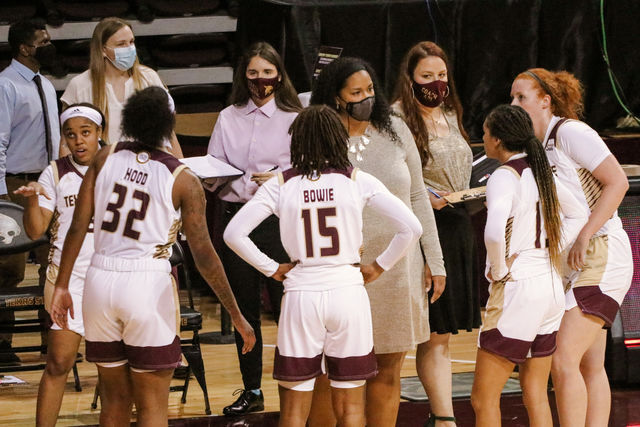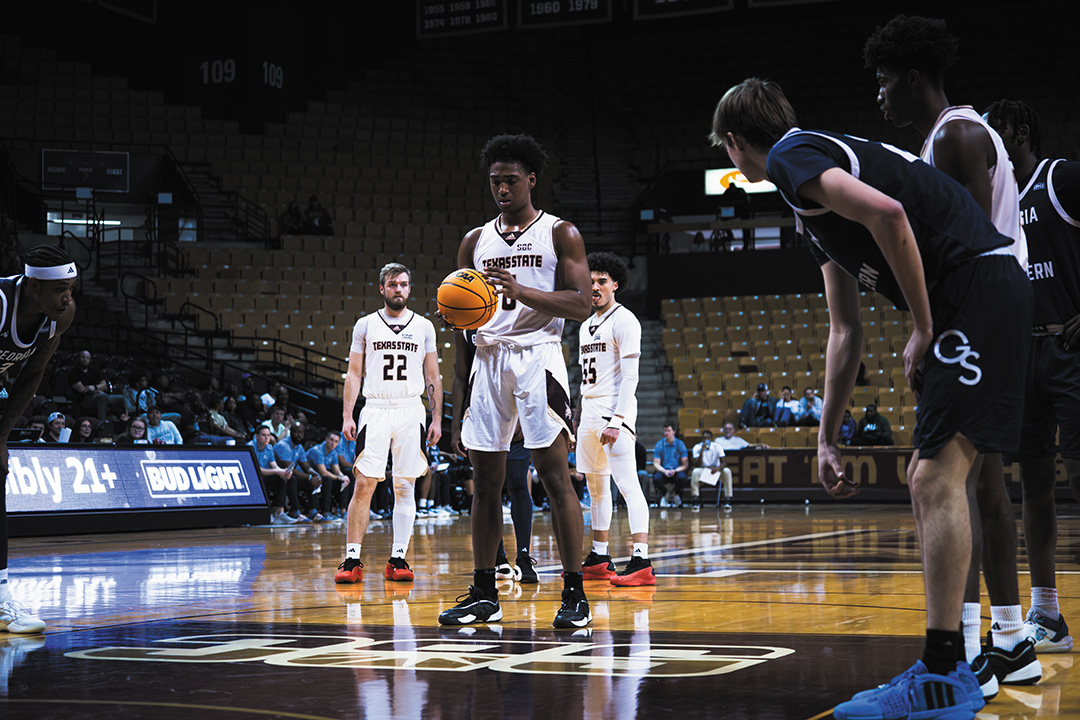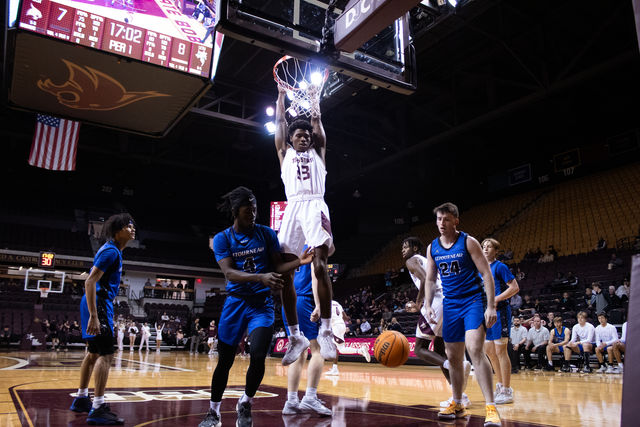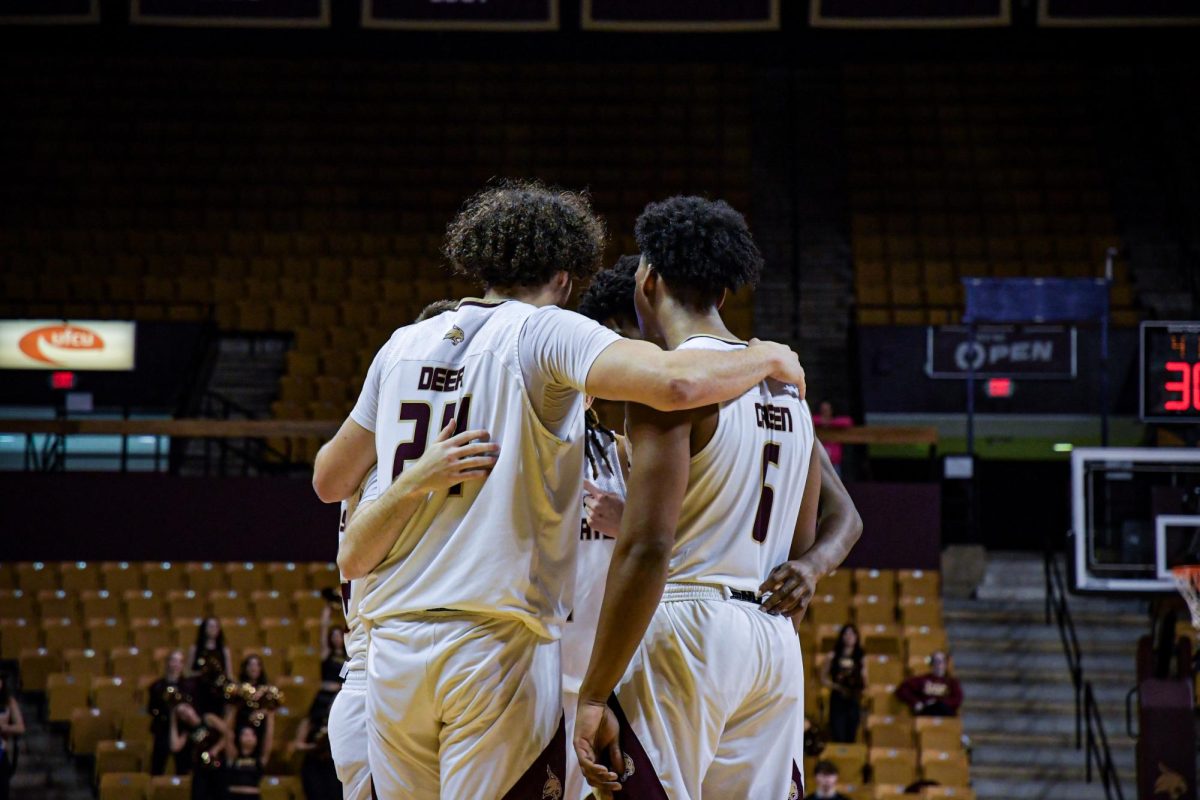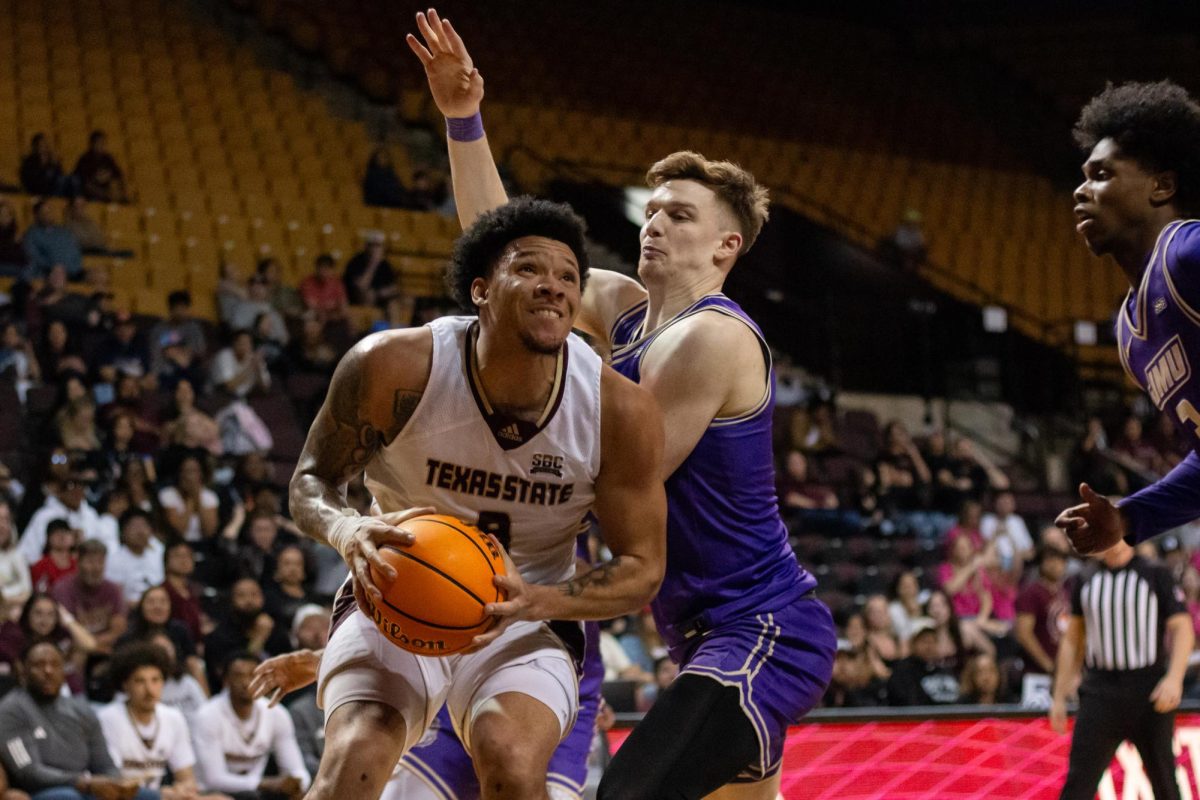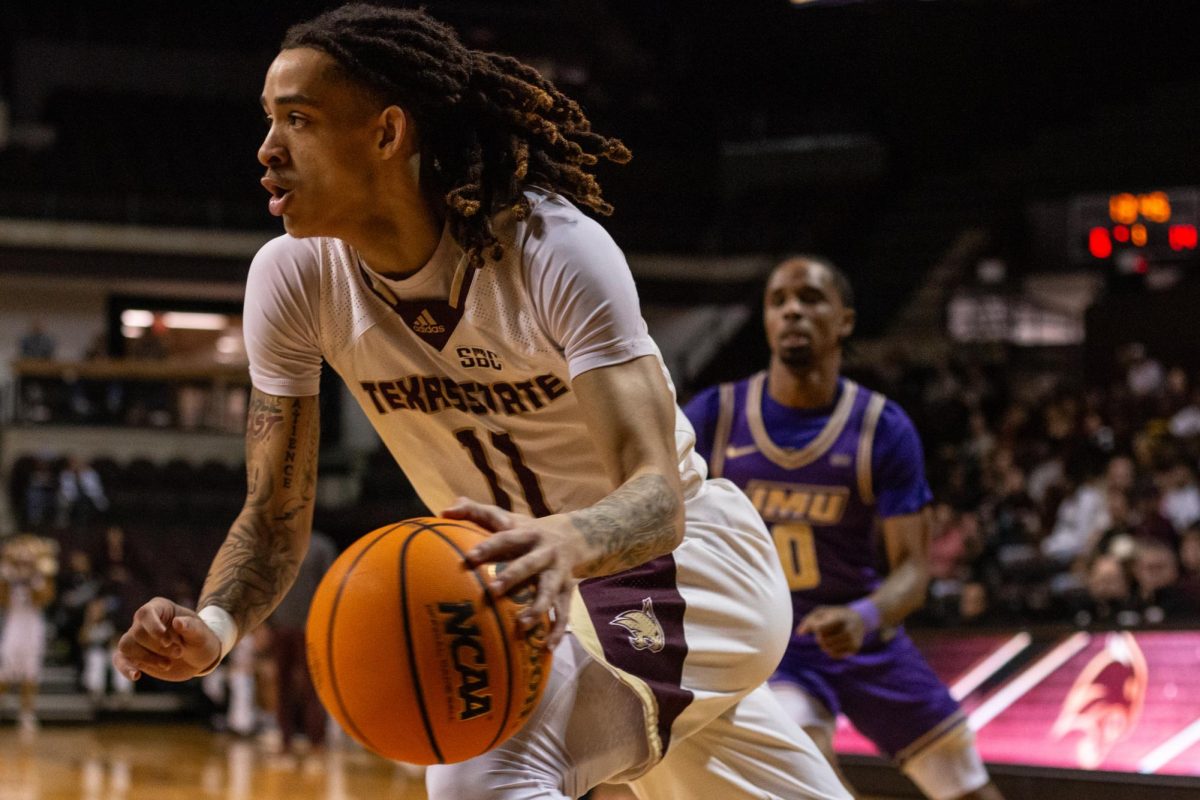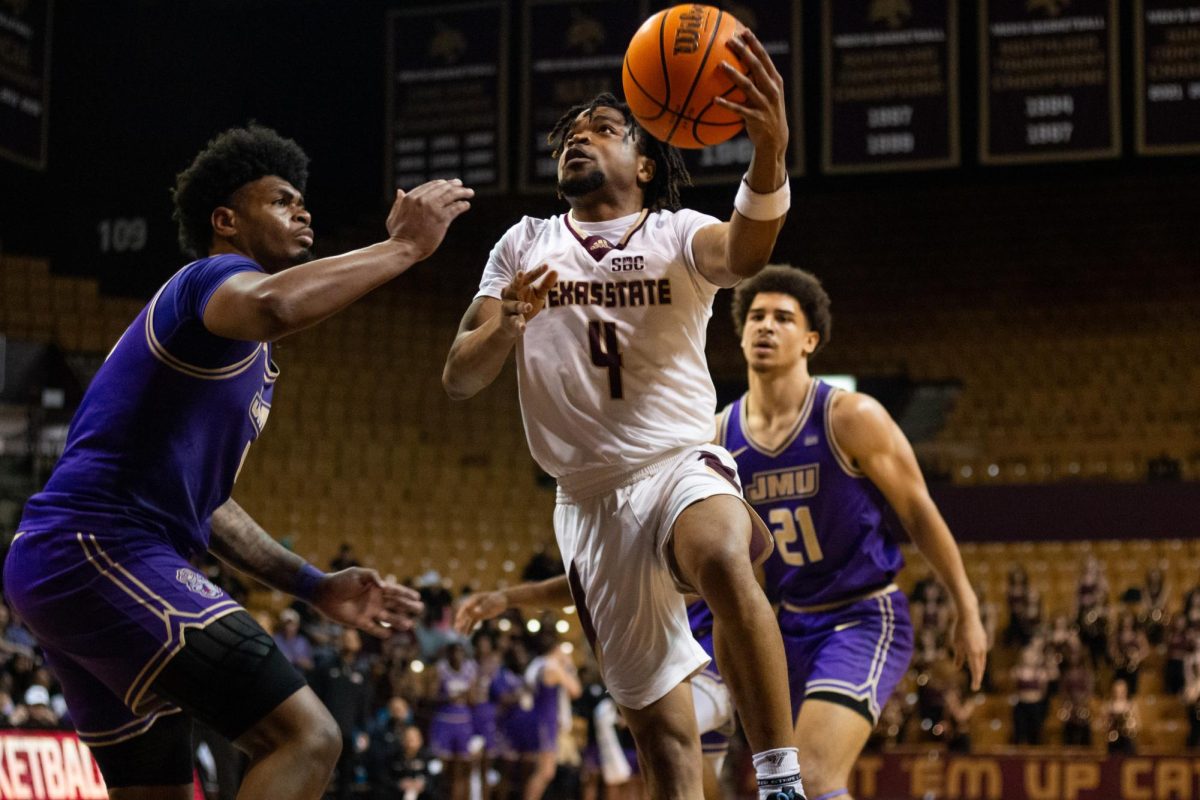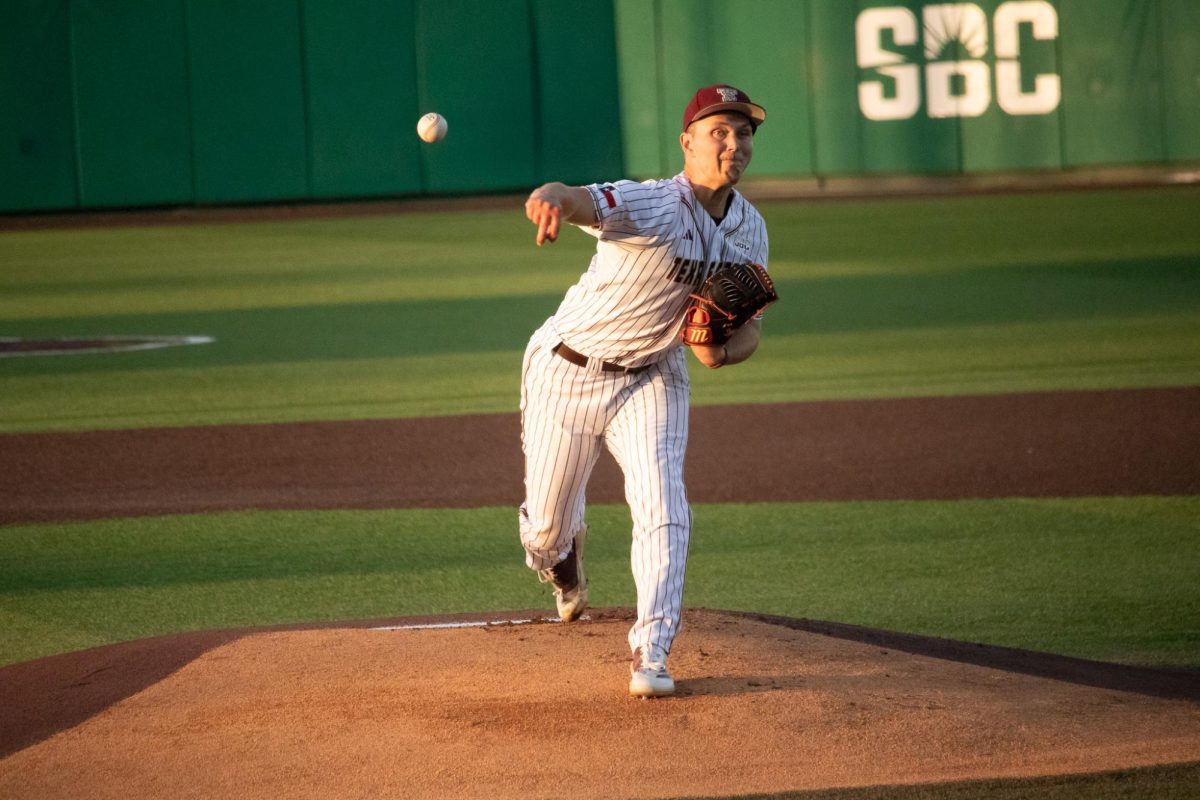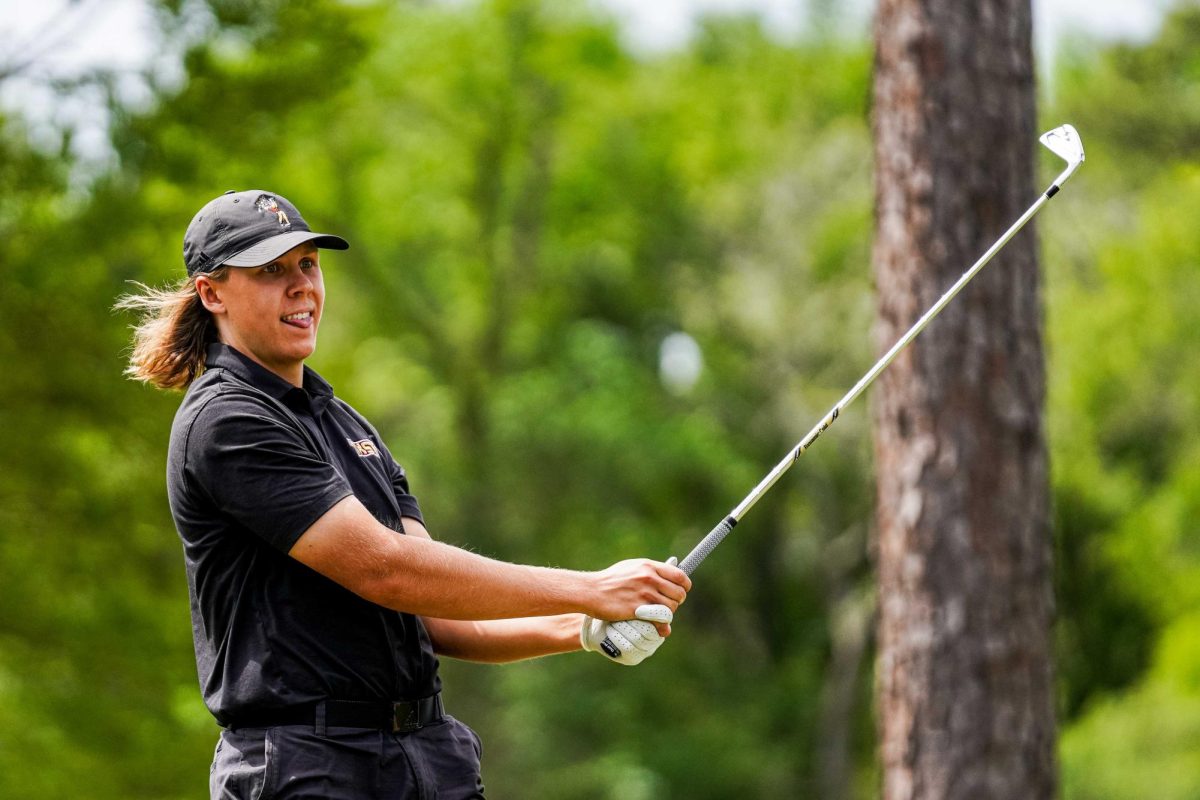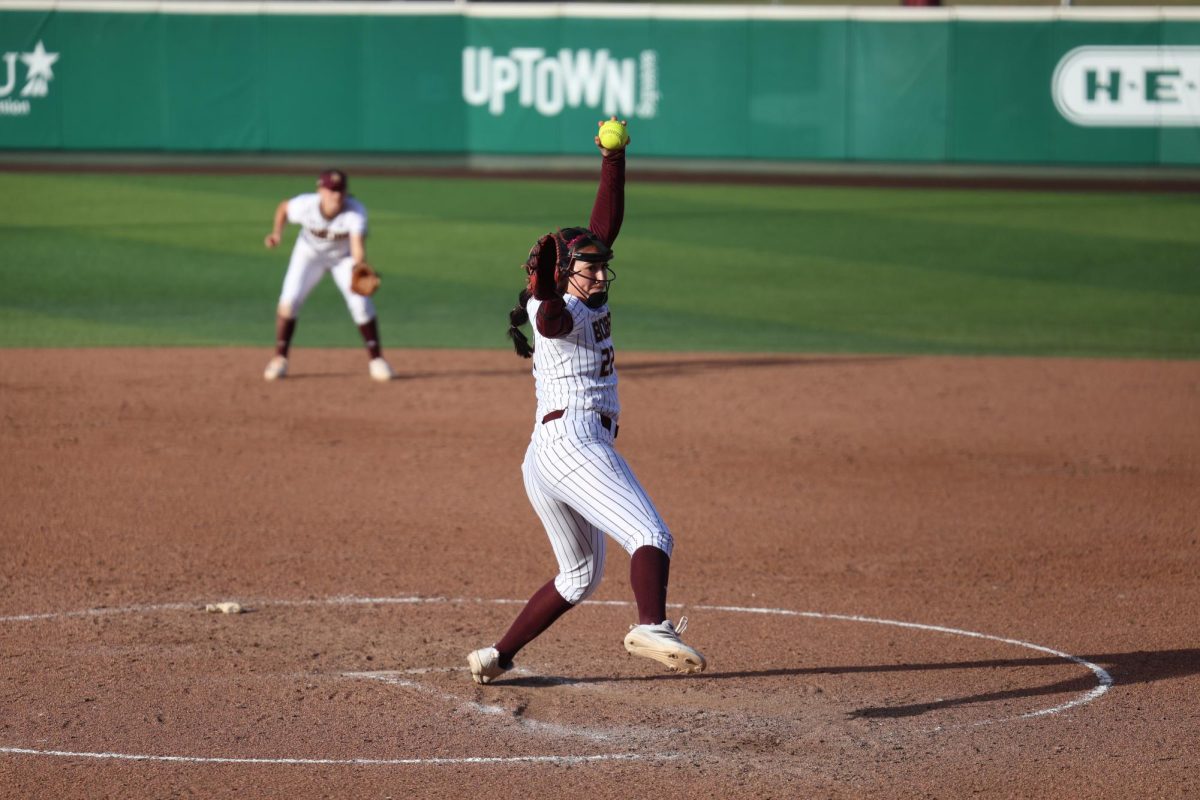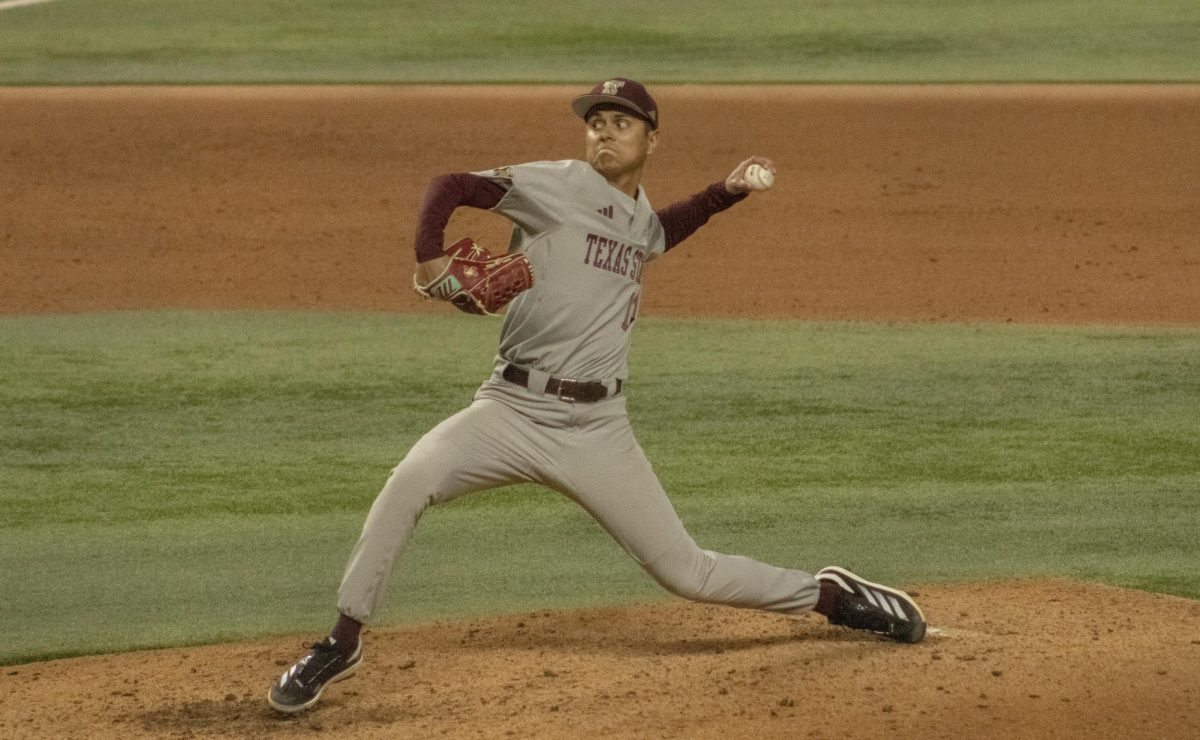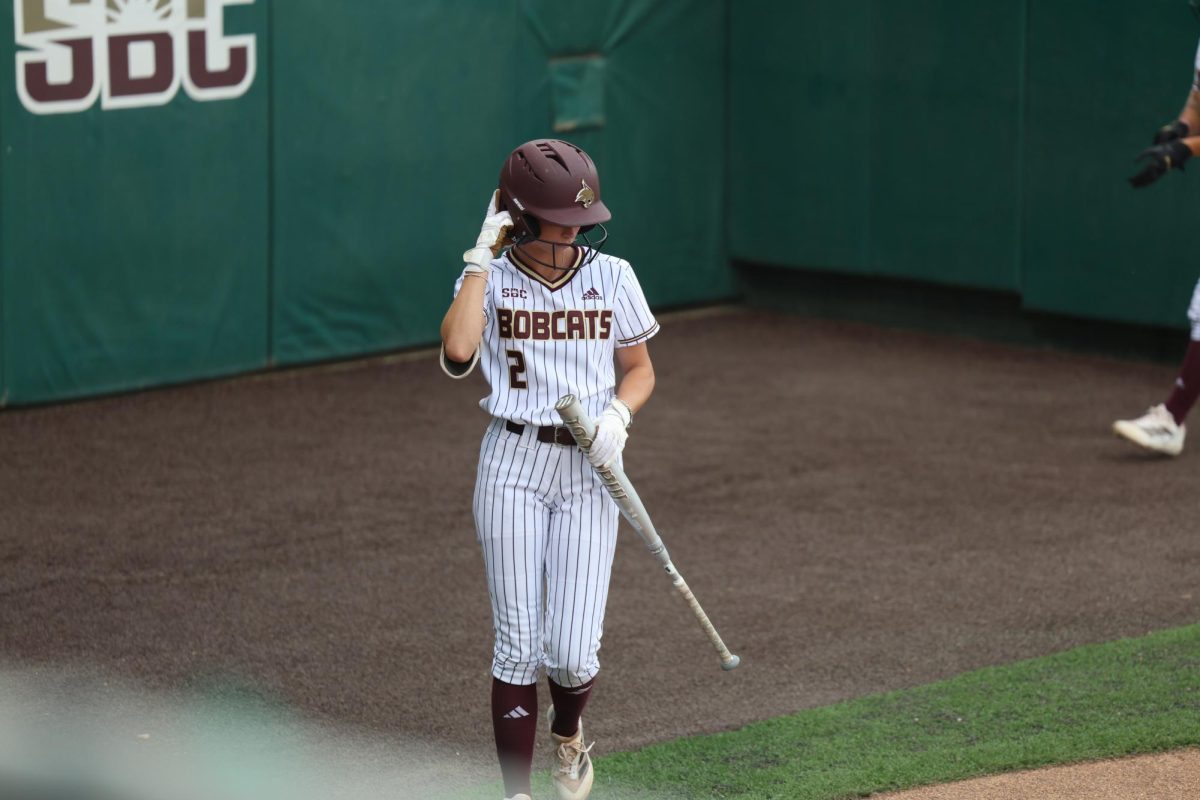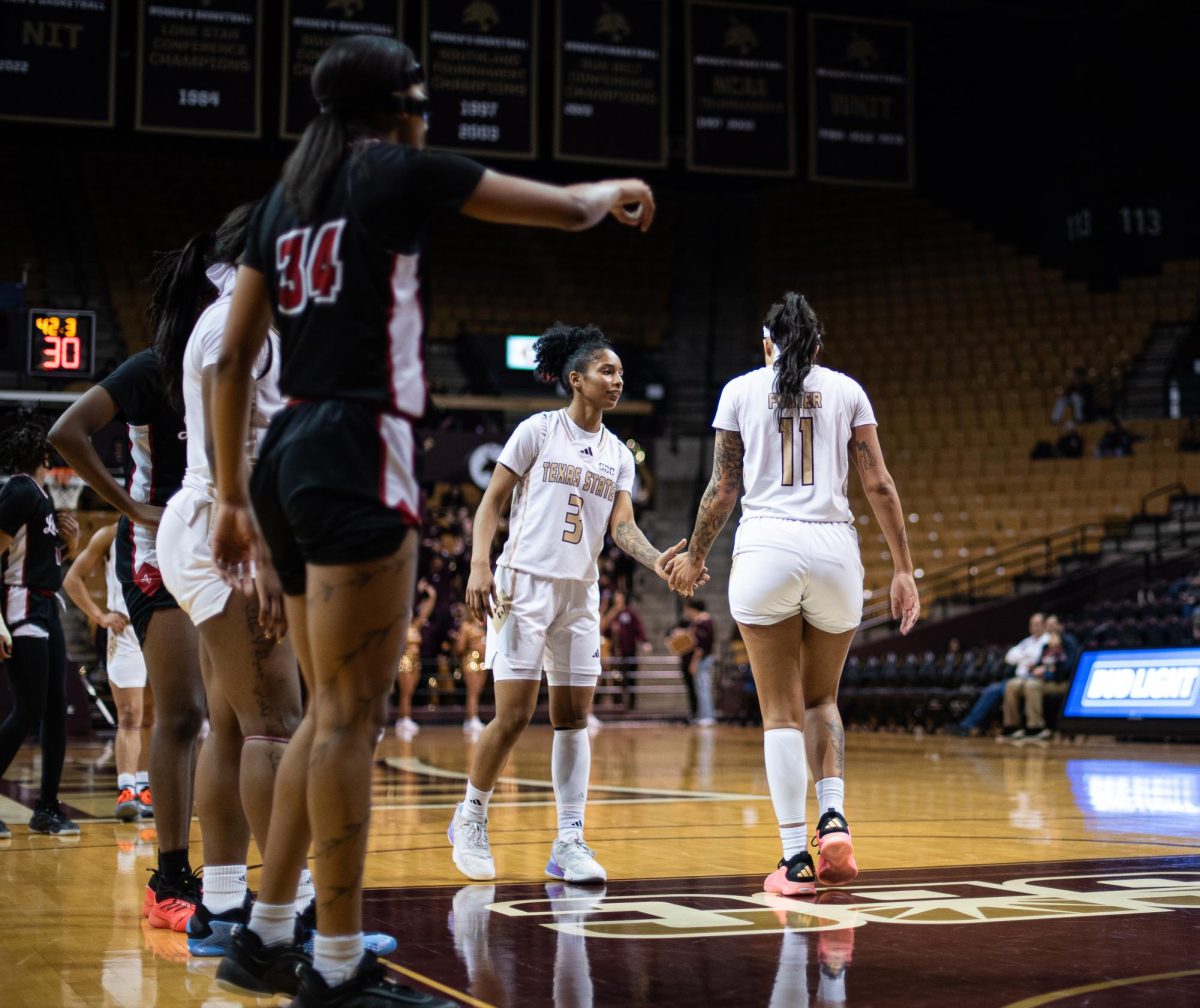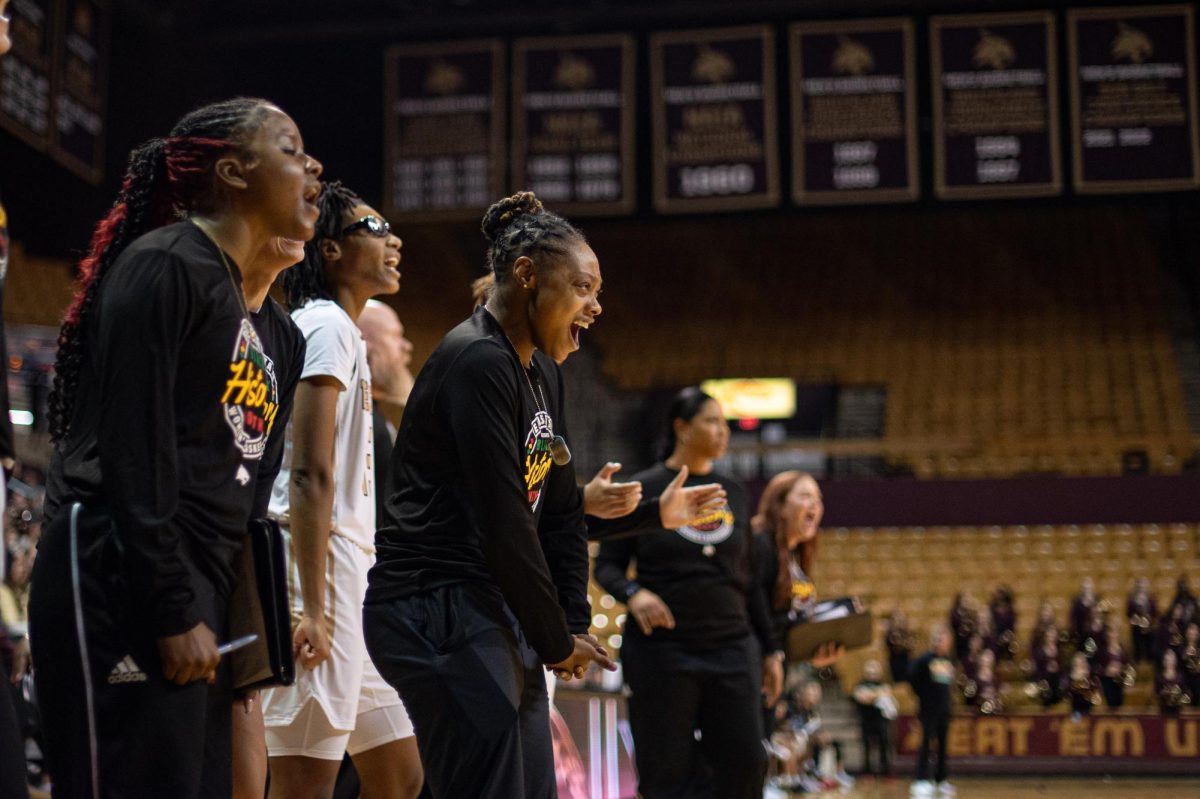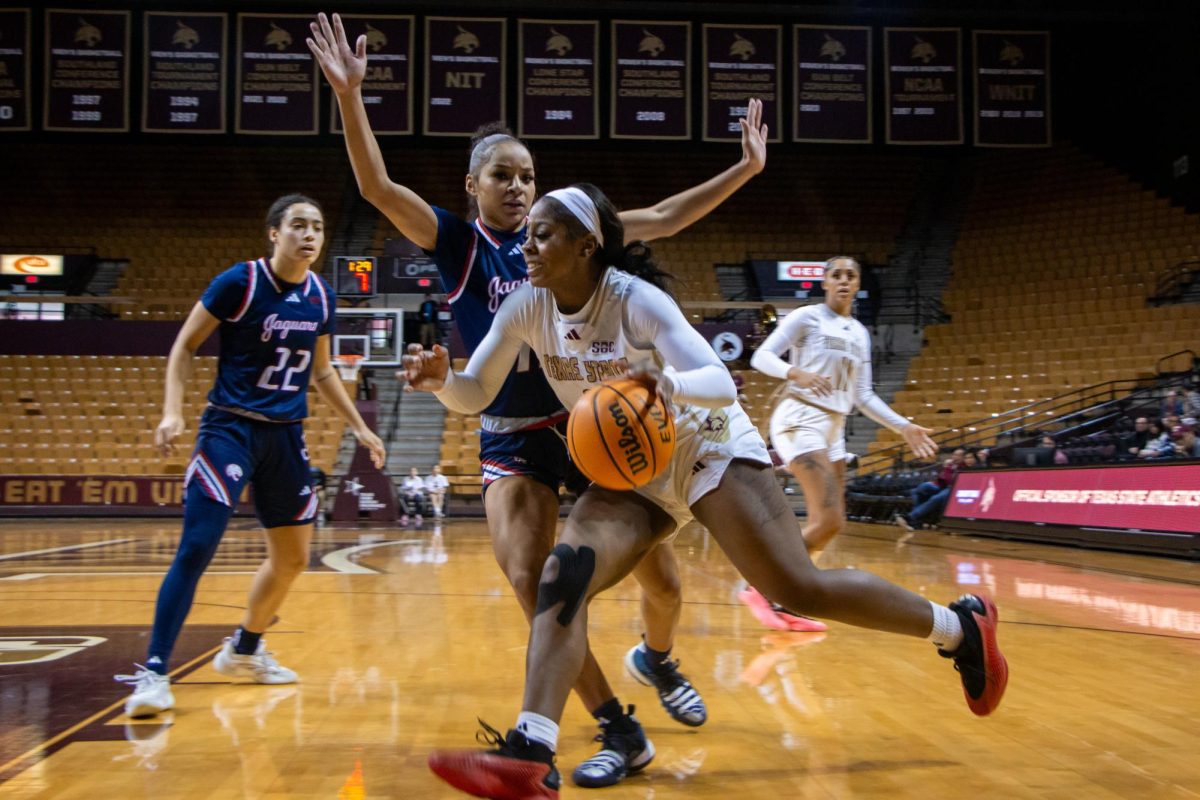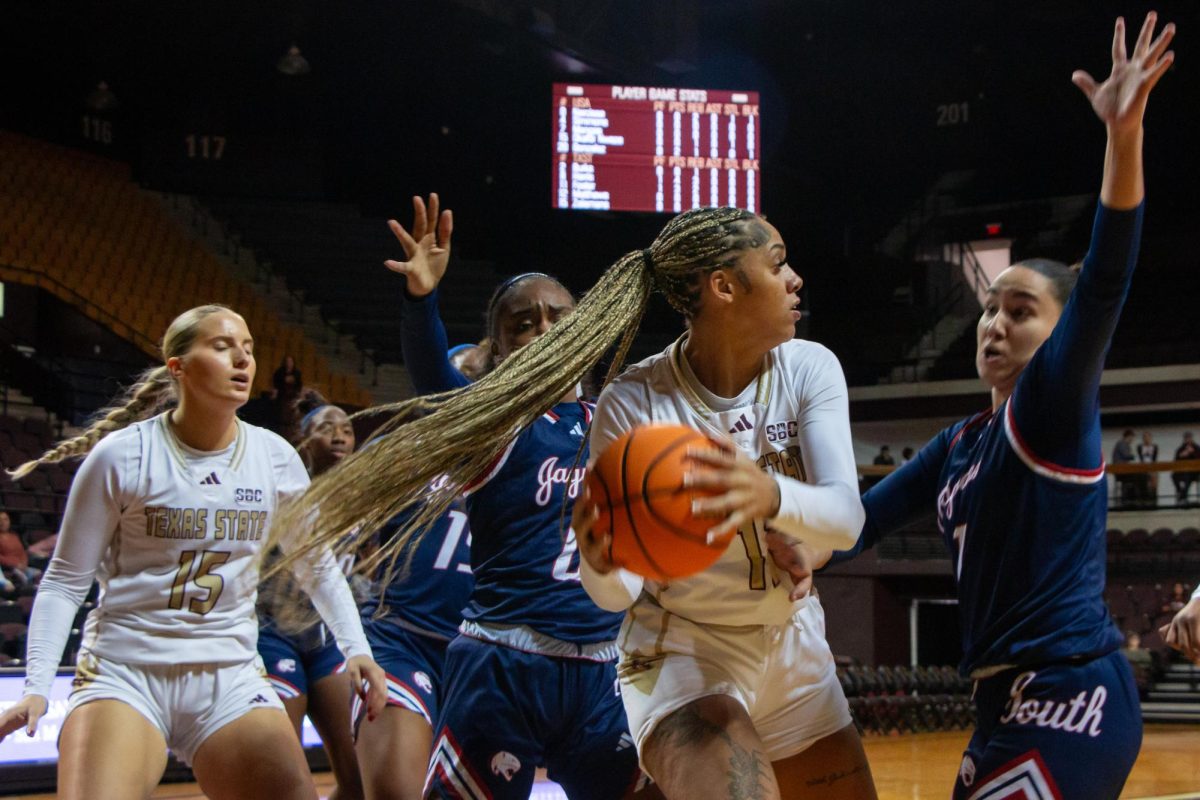Both the men’s and women’s basketball programs have undergone significant logistical trials preventing their travels, some striking closer to home than others.
Men’s basketball, according to a statement by the Department of Athletics on Jan. 6, postponed its games against Arkansas State University on Jan. 8-9 because of COVID-19 concerns within the Bobcat program. Women’s basketball had its two-game series hosting the University of Arkansas at Little Rock on Jan. 15-16 postponed over similar concerns.
Director of men’s basketball operations Alex Hausladen confirmed there was a positive COVID-19 test result related to the team and that the program was undergoing precautionary measures, adding that it would not have team practice until the situation cleared up.
“Throughout the whole year, our guys have been fantastic,” Hausladen says. “Unfortunately, this virus, as the whole country has shown, it has [this] ability to get into places, despite your best efforts. So, I feel like we’re doing the right things; we just need to keep doing the best that we can.”
Hausladen says the program undergoes three tests a week on non-consecutive days, two antigen and one PCR (Polymerase Chain Reaction) test. While there is no explicit punishment for players breaking or ignoring preventative health measures, Hausladen is confident the good behavior from the players will continue.
“Players are the best enforcers of other players’ expectations because they’re their peers,” Hausladen says. “[They] have the most physical contact with each other. [The] majority of them are roommates with at least one another.”
Keeping the players completely confined is near impossible, Hausladen believes, as he says the “bubble” method of hosting sporting events is impractical.
“College sports can’t have bubbles,” Hausladen says. “A bubble is an idea that there is a literal, physical space that only specific people can enter, and there is no interaction outside of that specific [area]. [What] you can do is a highly restricted environment, and you can do your best to limit contact.”
Abigail Whitling, director of women’s basketball operations, says the team’s recent trip to face Arkansas State University was an unnerving experience because of the risk of exposure, but it was made easier given the efforts made by the entire program to keep the season going.
“I was nervous to hop on a flight and go through an airport with the whole crew, with a whole group,” Whitling says. “[But] they’re taking this so seriously, and they’ve actually made a lot of sacrifices in this semester.”
Whitling says the program took steps to ensure minimal contact and exposure while traveling, such as requesting the team sit together during the flight and eat inside their hotel rooms whenever they can.
“We wear the N-95 [masks], there’s an option to wear a face shield,” Whitling says. “We have access to wipes and hand sanitizer at all times. I traveled up to the airport early to get all the boarding passes and the bag tags printed, so that was one step that was a little easier to go through.”
Whitling praises the Texas State facilities crew and their communication with other directors of operations of visiting programs, establishing safety parameters and the space in which opponents can function.
In addition to the risk of infection, the risk of fatigue and injury are increased significantly for players in both programs since games began taking place on consecutive days.
“Friday nights are really, really important for us,” Whitling says. “Almost just as important as gametime. Friday nights are those recovery periods for us. [Our] athletic trainer is super busy, making sure our girls get ice baths, making sure they get in the Normatecs, making sure they get the massages they need, anything like that.”
Women’s basketball senior guard Avionne Alexander also complimented trainers on alleviating the pressures of a congested schedule, as well as the mental pressures of playing during a pandemic. Alexander says the team’s nerves eased after returning from its first Sun Belt Conference trip.
“We were a little nervous, I think at the beginning, just kind of not knowing what it was going to be like in the airport and stuff,” Alexander says. “I think just having that protection, we felt a lot better traveling, and we stayed pretty much together the whole time. We didn’t really go off a whole lot. [I] think getting back here now we’re like, ‘Ok, that wasn’t bad.’”
Alexander says the team grew to appreciate what basketball meant to them during the extended time away from basketball because of offseason training cancellations.
“We weren’t in the gym as much during the summer like we normally are,” Alexander says. “We really just had a chance to just reflect on how much we miss basketball and just all the advantages and opportunities that we were given with the sport. So, not having it for so long I think just made us appreciate it even more.”
Alexander and her fellow players are not completely free of worry, as the complications caused by COVID-19 are still present. But she says the recent efforts of staff and support have made life on the court easier.
“I think naturally, there’s always going to be a little bit of anxiety just because of how bad it is or how it’s not necessarily getting any better around the world,” Alexander says. “But naturally, I think, because we take so many precautions that we don’t worry about too much. And I think we have confidence in our staff and our trainer, that they’re gonna keep us as safe as possible.”
Categories:
Basketball teams navigate early COVID-19-related stumbles
Ricardo Delgado, Sports Reporter
January 22, 2021
Texas State Head Coach Zenarae Antoine talks to players during a timeout in a game against Lamar University, Saturday, Dec. 19, 2020, at Strahan Arena.
0
Donate to The University Star
Your donation will support the student journalists of Texas State University. Your contribution will allow us to purchase equipment and cover our annual website hosting costs.
More to Discover



